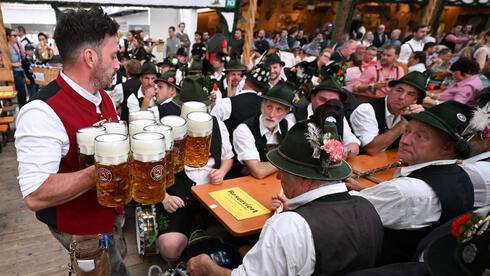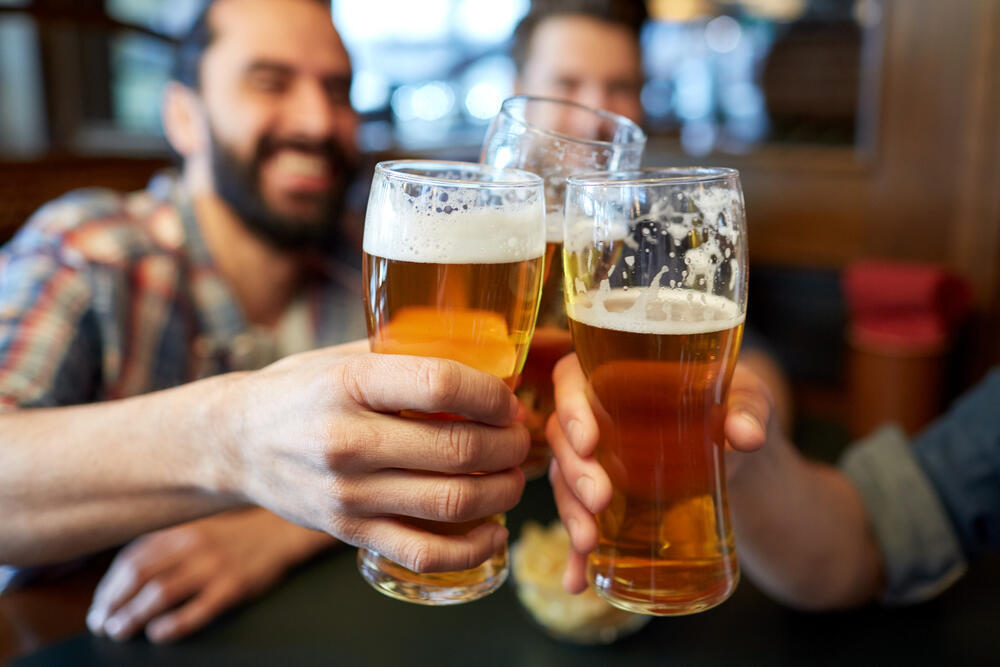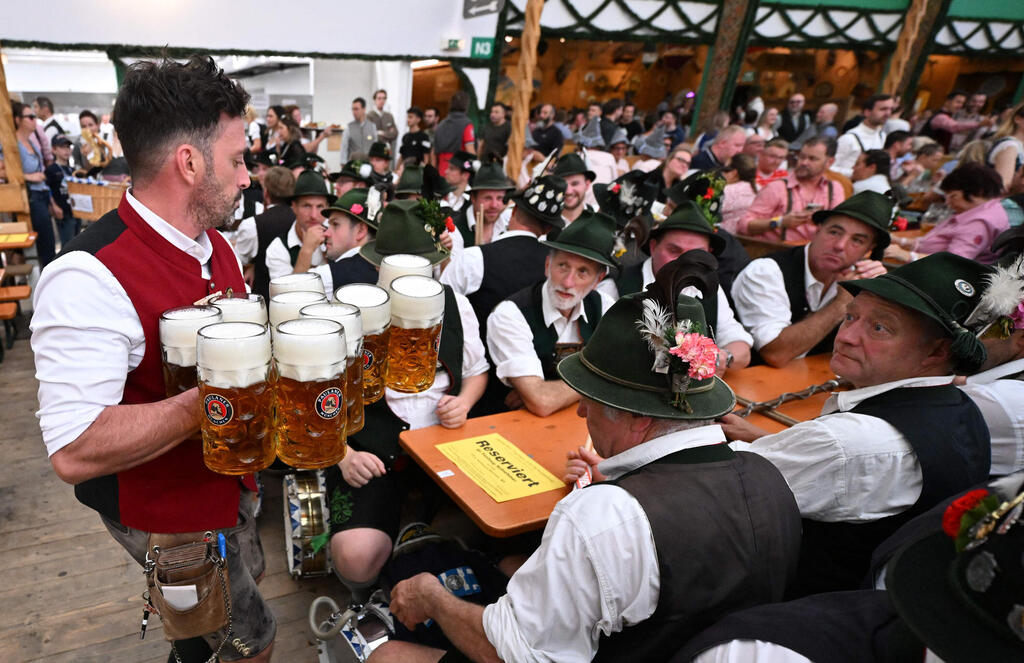Despite the summery weather during the spring and summer of 2024, and the success of the German national soccer team, which reached the quarterfinals of Euro 2024 held on home turf, beer sales in Germany continued their decade-long decline.
In 2024, Germans consumed 8.3 billion liters of beer—a drop of 119.4 million liters (1.4%) compared to 2023. Over the past decade, total beer consumption in the country has fallen by 15.1%, while beer exports declined by 6% during the same period.
The reasons behind the decrease in beer consumption are well known. The COVID-19 pandemic played a major role, with social gatherings shifting from pubs and beer gardens to online platforms. Inflation also reduced the quantity of beer consumed across Europe.
Among younger generations, a cultural shift toward health consciousness has led to a steep drop in beer drinking, as many opt for healthier alternatives to alcohol. Germany’s aging population is another factor, with many avoiding alcohol for health reasons. In addition, the influx of Muslim immigrants—many of whom abstain from alcohol for religious reasons—has contributed to the overall decline.
Per capita beer consumption has fallen from an average of 111 liters per year to just 88 liters in 2023.
The 2025 figures so far offer little relief for Germany’s 1,459 breweries—about 100 more than a decade ago. Between January and May, 3.41 billion liters of beer were sold in Germany, the lowest figure since reunification, marking a 7% drop compared to the same period last year. Not only is consumption declining, but it is doing so at an accelerating pace, with the rate of decline doubling in recent years.
Non-alcoholic beer: A rare bright spot
While Germany’s brewers continue to face declining demand for traditional beer, non-alcoholic varieties have emerged as a rare area of growth. Non-alcoholic beers now account for roughly 10% of total beer sales in the country, though competition in this niche is intense.
The German Brewers Association has already issued a warning: given waning consumer sentiment—particularly toward domestic beer—and significantly rising production costs, dozens or even hundreds of breweries may be forced to close or merge with larger producers.
One striking statistic highlights the pressure on the industry: Germans are buying beer at supermarket prices that haven’t changed since before reunification. A crate of 20 half-liter bottles sells for just €10 to €11. The brunt of these losses is being absorbed by beverage shops, supermarkets and distribution companies that supply restaurants and other businesses.
Though such discounts may boost short-term sales, they come at a long-term cost. Low prices damage the brand’s image and make it harder for brewers to reposition beer as a premium—or even health-conscious—product. These low margins also prevent brewers from raising prices to keep up with surging production costs.
Young Germans are drinking less—and they have good reason
The generational shift in drinking habits is visible across the advertising world. Beer commercials that once celebrated friendship, parties, beaches, sunshine and sex appeal have largely disappeared. Sponsorships of major events like music festivals or soccer matches are less common. For many in their 20s, alcohol no longer fits their lifestyle.
And this younger generation has good reason to steer clear. A 2024 report found that around 49,000 Germans died as a result of alcohol consumption. Some 12,200 children and adolescents aged 10 to 20 were hospitalized for alcohol poisoning. People under the influence of alcohol committed 231,300 criminal offenses—11% of all crimes in Germany. When it comes to violent crime, the connection is even stronger: one in four violent offenses was committed by someone under the influence.
While the German government collects around €3 billion annually in alcohol-related taxes, it spends nearly $40 billion each year, both directly and indirectly, on treating alcohol-related illnesses. At the same time, budget cuts have forced the closure of many addiction treatment centers, despite high demand.
Meanwhile, the beer industry maintains one of the most powerful lobbying groups in the German parliament, repeatedly pushing for legislation favorable to brewers, despite alcohol’s harmful social impact.
Even so, beer remains a part of Germany’s national heritage. Millions still travel to Munich each year to celebrate Oktoberfest. But the connection between beer and German identity is fading, and the decline in consumption reflects broader cultural and demographic shifts underway across the country.


